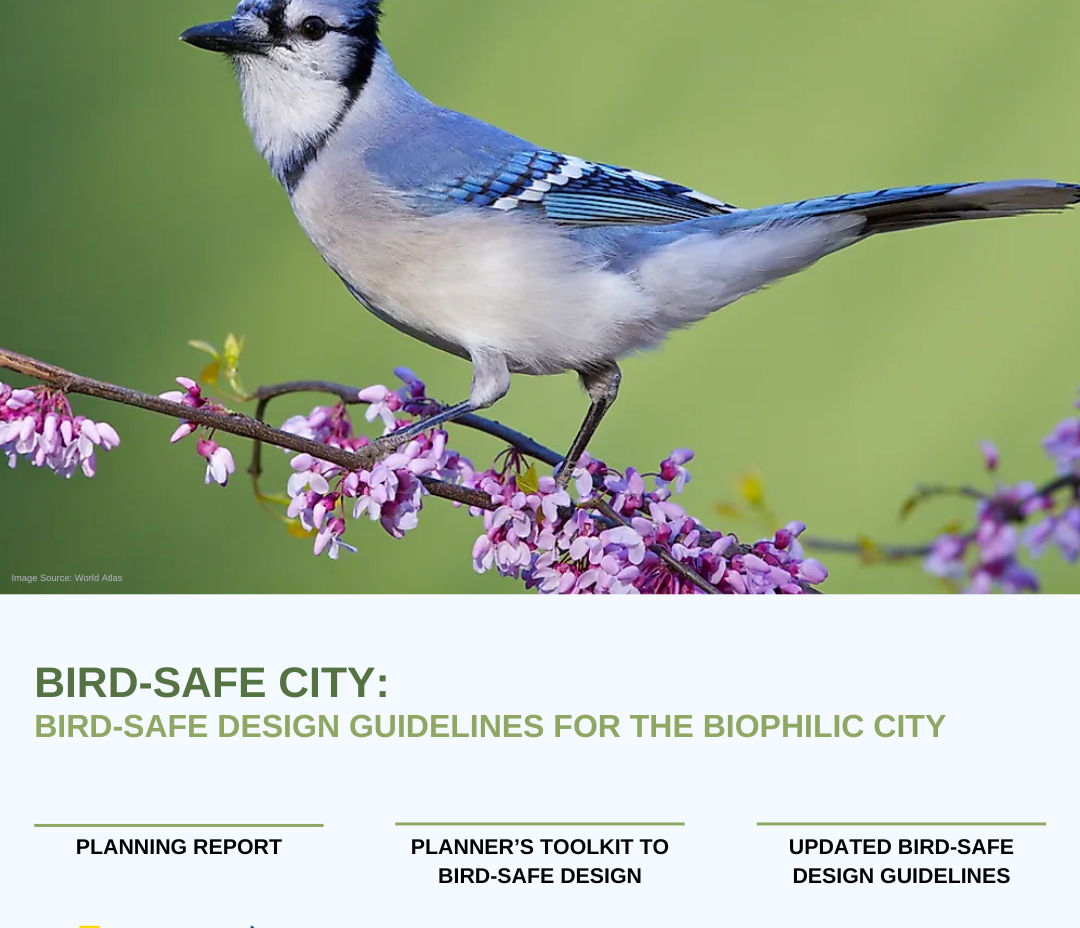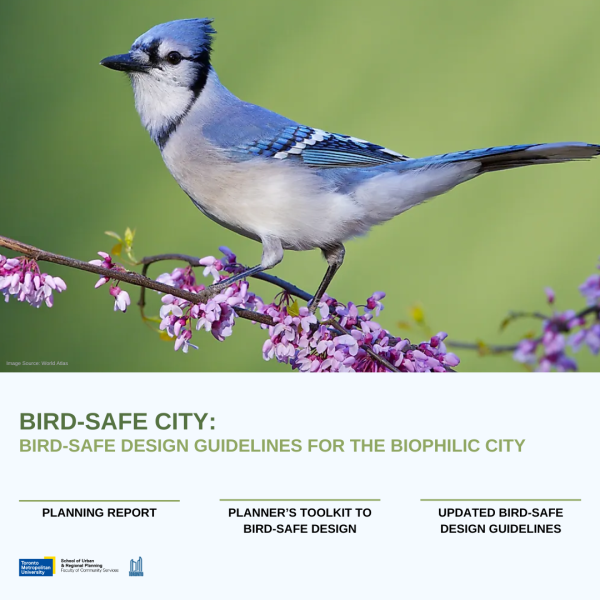BIRD-SAFE CITY
Bird-Safe Design Guidelines for the Biophilic City
Many birds in North and South America are experiencing significant decline due to urbanization and climate change resulting in new ecological interactions, outpacing their ability to adapt (Whelan et al., 2015). The expansion of urban areas and human infrastructure has resulted in the fragmentation and loss of bird habitats. Larger urban areas within migratory paths pose a significant threat to bird life as these areas typically emit high levels of light pollution and have countless buildings containing large amounts of glass. The combination of the two hazards pose a lethal threat to bird safety. Bird’s rely on the sun and stars to navigate, and when these celestial cues are obscured by excess artificial light, birds are disoriented, leading to collisions with windows.
The Bird-Safe City project is an important initiative that seeks to address the decline in bird populations resulting from collisions within the built environment, contributing to a global biodiversity crisis. By providing recommendations to update the existing City of Toronto’s Bird-Friendly Development Guidelines, this project aims to incorporate bird-safe design practices into urban planning policies to minimize the impact of urbanization on biodiversity loss. This project’s primary objectives include comprehensive research on bird-safe planning and design, a policy scan, and an examination of emerging standards.
The project deliverables include a Planning Report, Bird-Safe Design Toolkit, and updated Bird-Safe Design Guidelines. Together, they will contribute to a holistic approach aimed at ensuring safe passage and improved urban habitats for birds. By aligning with the City’s commitment to the Biophilic Cities Network, Toronto aims to strengthen its position as a champion of urban biodiversity through innovative and sustainable planning practices. Successful implementation of this project promises a future where cities and nature coexist sustainably, demonstrating the critical role of urban planning in fostering biodiversity protection.

